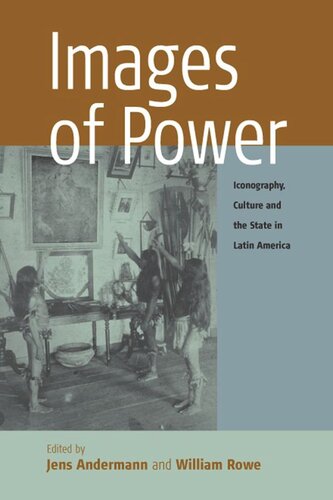

Most ebook files are in PDF format, so you can easily read them using various software such as Foxit Reader or directly on the Google Chrome browser.
Some ebook files are released by publishers in other formats such as .awz, .mobi, .epub, .fb2, etc. You may need to install specific software to read these formats on mobile/PC, such as Calibre.
Please read the tutorial at this link: https://ebookbell.com/faq
We offer FREE conversion to the popular formats you request; however, this may take some time. Therefore, right after payment, please email us, and we will try to provide the service as quickly as possible.
For some exceptional file formats or broken links (if any), please refrain from opening any disputes. Instead, email us first, and we will try to assist within a maximum of 6 hours.
EbookBell Team

5.0
88 reviewsIn Latin America, where even today writing has remained a restricted form of expression, the task of generating consent and imposing the emergent nation-state as the exclusive form of the political, was largely conferred to the image. Furthermore, at the moment of its historical demise, the new, 'postmodern' forms of sovereignty appear to rely even more heavily on visual discourses of power. However, a critique of the iconography of the modern state-form has been missing. This volume is the first concerted attempt by cultural, historical and visual scholars to address the political dimension of visual culture in Latin America, in a comparative perspective spanning various regions and historical stages. The case studies are divided into four sections, analysing the formation of a public sphere, the visual politics of avant-garde art, the impact of mass society on political iconography, and the consolidation and crisis of territory as a key icon of the state.